Hearing Loss
What is
Hearing Loss?
A person who is not able to hear as well as someone with normal hearing – hearing thresholds of 20 dB or better in both ears – is said to have hearing loss. Hearing loss may be mild, moderate, severe, or profound. It can affect one ear or both ears and leads to difficulty in hearing conversational speech or loud sounds.
How is it caused?
Causes of hearing loss include:
Damage to the inner ear. Aging and loud noise can cause wear and tear on the hairs or nerve cells in the cochlea that send sound signals to the brain. Damaged or missing hairs or nerve cells don’t send electrical signals well. This causes hearing loss. Higher-pitched tones may seem muffled. It may be hard to pick out words against background noise.
A buildup of earwax. Over time, earwax can block the ear canal and keep sound waves from passing through. Earwax removal can help restore hearing.
Ear infection or unusual bone growths or tumors. In the outer or middle ear, any of these can cause hearing loss.
A ruptured eardrum is also known as tympanic membrane perforation. Loud blasts of noise, sudden changes in pressure, poking an eardrum with an object, and infection can cause the eardrum to burst.
Who is a candidate for a cochlear implant?
Cochlear implants are designed for people with moderate to severe sensorineural hearing loss (loss due to damage in the inner ear) who have difficulty interpreting speech even with a hearing aid.
A cochlear implant may be right for those who:
1) Struggle to understand speech even with hearing aids that are properly fitted.
2) Are motivated and have adequate support systems to help them learn to understand sounds and speech with the implant.
Determining whether a cochlear implant will help a patient takes a team approach. The doctor may work with other experts and recommend:
- A hearing test (audiogram), with or without hearing devices currently being used.
- A CT scan and MRI to examine the inner ear.
- Examination by audiologists and other specialists to assess communication abilities.
- Tests for balance, since surgery involving the ear can have an impact on balance.
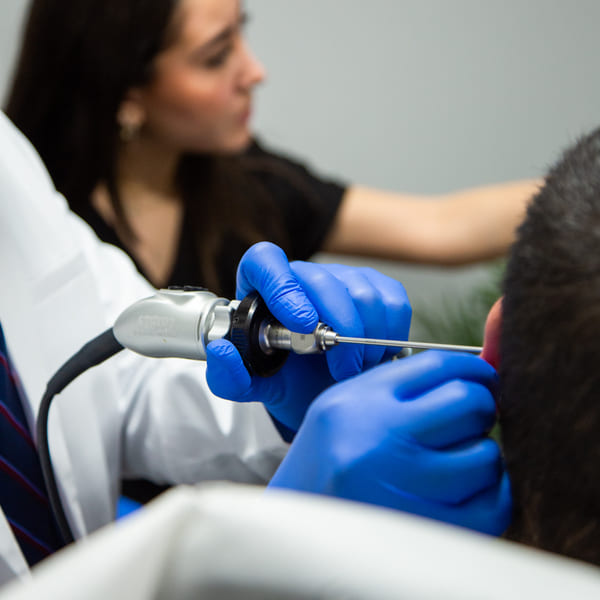
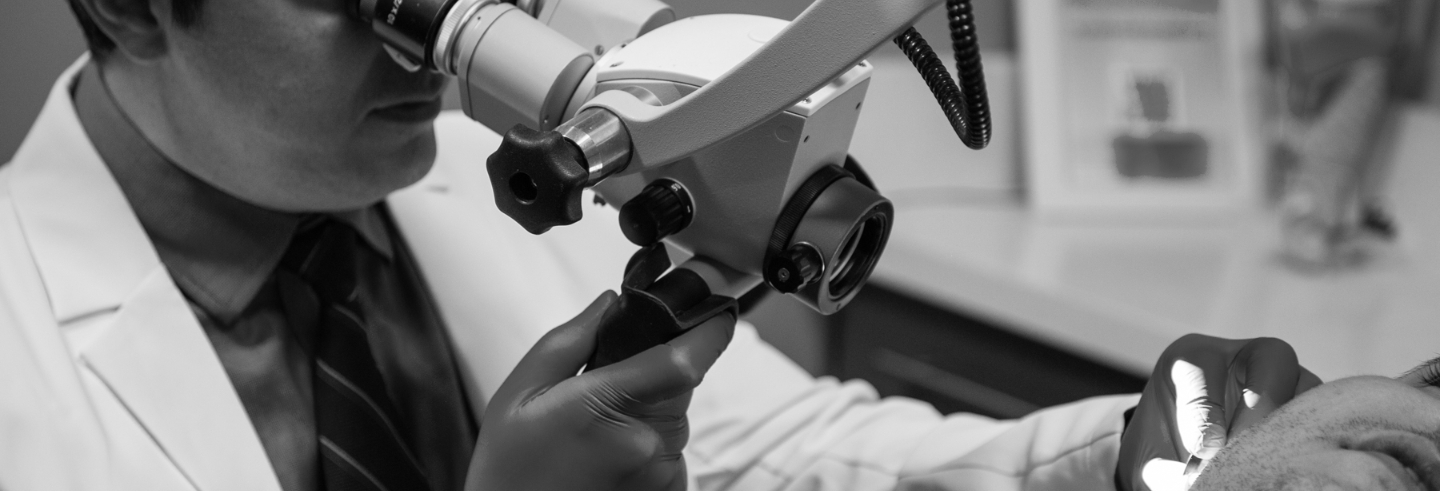
What are possible complications of the surgery?
The chances of complications with exostosis surgery are very rare. Like any surgery, the most common risk is infection. Extra care is taken to perform the surgery in a sterile environment, and antibiotics are given both before and after the procedure to help prevent any infection.
Sometimes the exostosis can be very close to the eardrum, and extra care must be taken to avoid any injury to the eardrum which can lead to hearing loss.
What is cochlear implant surgery?
Surgery to place a cochlear implant inside the ear is an outpatient procedure performed in a hospital or clinic.
The surgery lasts about two hours. Patients are given medication (general anesthesia) so that they are asleep during the procedure. The patient returns to the audiologist a few weeks later to have the cochlear implant activated and programmed (mapped).
The small incision behind the ear
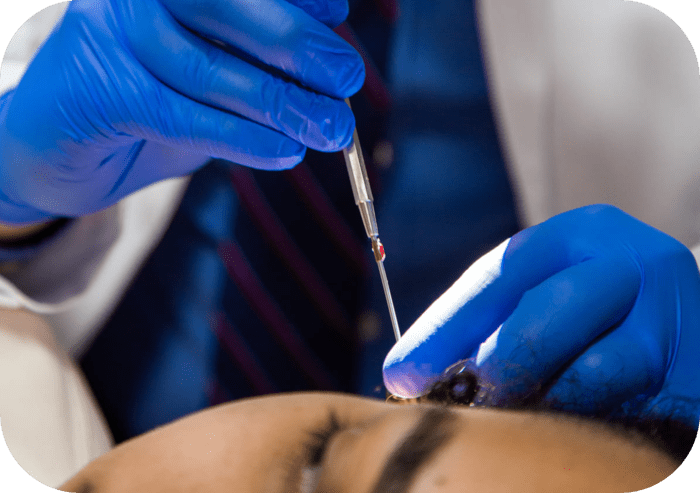
The surgeon makes a small incision behind the ear and then creates an opening in the mastoid bone to guide the electrode to the cochlea.
The implant electrodes are placed
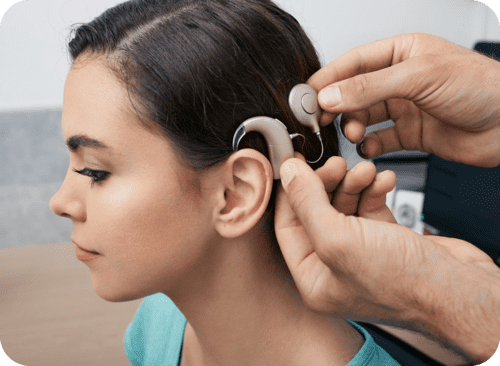
The implant electrodes are placed inside the cochlea.
The surgeon places an internal processor
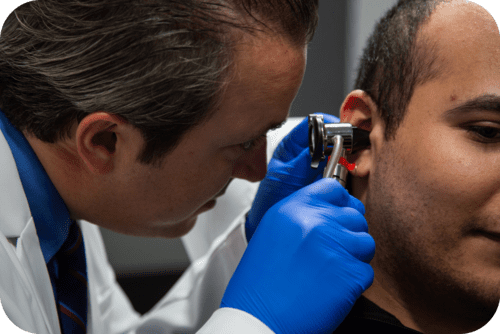
The surgeon places an internal processor in a pocket between the muscle and bone behind the ear. The internal processor receives information from an external speech processor that will be worn outside the skin.
The incisions are closed

The incisions are then closed, and the patient is moved into the recovery area and watched closely as he or she recovers from the anesthesia.
How to prevent Hearing loss?
The following steps can help prevent hearing loss from loud noises and keep hearing loss from aging from getting worse:
– Protect your ears. Staying away from loud noise is the best protection. In the workplace, plastic earplugs or glycerin-filled earmuffs can help protect hearing.
– Have your hearing tested. If you work around a lot of noise, think about regular hearing tests. If you’ve lost some hearing, you can take steps to prevent further loss.
– Avoid risks from hobbies and play. Riding a snowmobile or a jet ski, hunting, using power tools, or listening to rock concerts can damage hearing over time. Wearing hearing protectors or taking breaks from the noise can protect your ears. Turning down the volume when listening to music helps too.
People with cochlear implants report the following benefits:
- The ability to hear their own voice and improve their voice tone and pronunciation
- Easier communication with friends and family members
- The ability to hear sounds around them for safety and better quality of life
- For babies born with hearing loss or young children with progressive hearing loss, the ability to meet developmental milestones if cochlear implants are used starting at a young age
However, the following points deserve consideration:
- Results vary. Not everyone experiences the same level of improvement in hearing and well-being after a cochlear implant.
- Part of the device is surgically implanted and cannot be removed without further surgery.
- A cochlear implant that fails (this is very rare) must be surgically removed, but usually it can be replaced during the implant procedure.
- The sound experienced with a cochlear implant is different than normal hearing, and the brain needs time to learn how to use the new input.
What can you hear with a cochlear implant?
Results for people with a cochlear implant differ widely, from little benefit to almost completely restored hearing. For adults, hearing improves rapidly during the first three months and then levels off, with slower improvement over the next several years. Progress is slower for children, who need to learn language through hearing with the cochlear implant.
Most people can distinguish soft, medium, or loud noises, and identify common sounds such as the doorbell, the phone, approaching vehicles, and footsteps. Many people can use the telephone and watch and enjoy television.
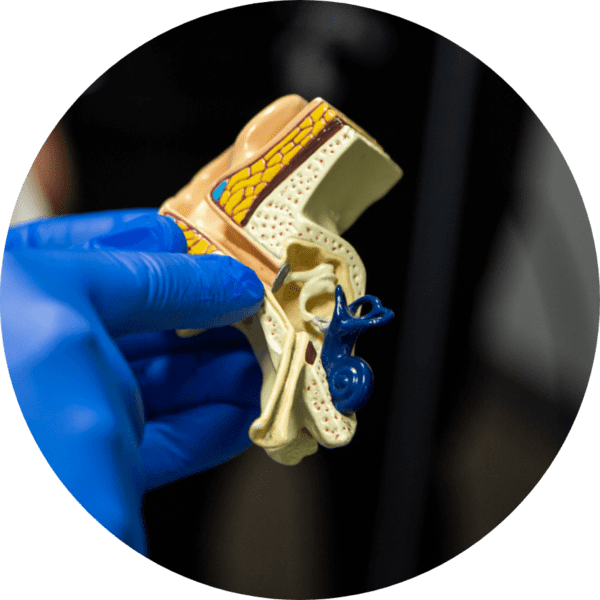
Patients who have exceptionally good results can hear and appreciate music, with or without headphones, and even discern different instruments. All current cochlear implants can wirelessly stream audio from smartphones and other devices equipped with Bluetooth.
Still have questions regarding the condition?
While the information in this website may be helpful, it will never fully relate ear treatment to you. If you are facing any ear problem, please call our office and one of our representatives will talk to you.
CONTACT USTESTIMONIALS
What are patient say about us
Thanks to the expert care and skillful ear surgery I received, my life has been transformed. I can hear clearly again, and I’m forever grateful for the life-changing experience provided by the talented team
“Dr. Nazarian, who gave me back the wonderful gift of hearing!”
“Since the very first time of seeing Dr. Nazarian, I feel that I have been in the best of care- and from the first day and through the my surgery, I have felt that Dr. Nazarian is a very compassionate and caring doctor- more than I have ever seen. I feel very fortunate to have been referred to Dr. Nazarian. He is the best!”